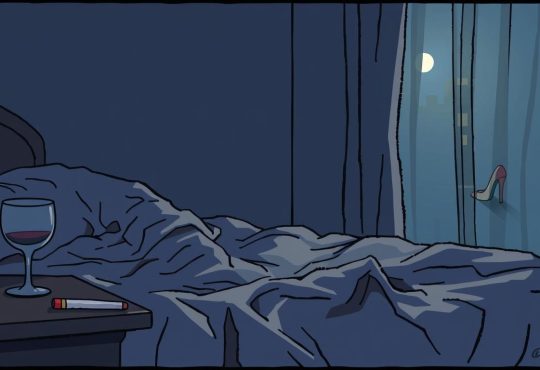
Have you ever wondered why some relationships start with excitement but end in disappointment? Dating in your 50s can be both rewarding and challenging. It’s a time to embrace new connections while staying mindful of potential pitfalls.
This guide is here to help you navigate the dating scene with confidence. We’ll explore common issues like rushed intimacy and inconsistent behavior. By paying attention to these signs, you can build healthier and more meaningful relationships.
Our insights are backed by research and expert advice, ensuring you’re well-prepared for this journey. Trust your instincts and appreciate the wisdom that comes with age. Let’s dive in and discover how to make the most of your dating experience.
On this Page:
- 1 Understanding the Senior Dating Experience in Your 50s
- 2 Spotting “red flags when dating in your 50s”
- 3 Rushed Intimacy and Overeagerness
- 4 Inconsistent Behavior and Lack of Communication
- 5 Financial Warnings and Trusting Your Instincts
- 6 Isolation, Transparency, and Unresolved Past Baggage
- 7 Navigating the World of Online Dating Safely
- 8 Conclusion
Understanding the Senior Dating Experience in Your 50s
Navigating romance in your 50s is a journey filled with unique opportunities. This phase of life brings a blend of wisdom, challenges, and new beginnings. Unlike earlier years, dating now is shaped by decades of personal growth and self-awareness.
Many individuals in their 50s are exploring relationships after significant life changes, such as divorce or loss. These experiences often lead to a deeper understanding of what they seek in a partner. It’s a time to embrace vulnerability while leveraging the wisdom that comes with age.
Why Dating in Your 50s Is Unique
Dating in your 50s is distinctly different from younger years. Maturity and life experience play a significant role in shaping connections. Priorities shift, and many focus on building meaningful relationships rather than fleeting romances.
Self-awareness is also heightened at this age. People often have a clearer understanding of their values, interests, and what they want in a partner. This clarity can lead to more genuine and fulfilling connections.
Embracing Life Changes and New Beginnings
Life changes, such as becoming single later in life, can be both challenging and liberating. These transitions open the door to new opportunities for growth and companionship. Embracing these changes is key to finding happiness in this chapter.
Open communication is essential during this phase. It helps build trust and ensures both partners are on the same page. By fostering honest dialogue, relationships can thrive even in the face of past challenges.
Ultimately, dating in your 50s is about balancing vulnerability with wisdom. It’s a chance to create connections that are rooted in mutual respect and shared life experiences.
Spotting “red flags when dating in your 50s”
Spotting warning signs early can save you from unnecessary heartache in relationships. Being mindful of subtle cues helps you avoid potential pitfalls and build healthier connections. Let’s explore how to identify these signs and what they might mean for your dating journey.
Recognizing Early Warning Signs
One of the first things to watch for is an evasive or incomplete profile on a dating app. If a person avoids sharing essential information, it could indicate a lack of transparency. This behavior might suggest they’re hiding something or not serious about building a genuine connection.
Mixed messaging is another common red flag. If your date says one thing but does another, it can create confusion and erode trust. Inconsistent behavior often points to deeper issues, such as emotional unavailability or unresolved past baggage.
Rushed intimacy is another warning sign. While it’s natural to feel excited about a new relationship, moving too fast can be a red flag. Take your time to get to know the person and ensure your values and interests align.
Small inconsistencies in communication can also be telling. For example, if they frequently cancel plans or avoid discussing future commitments, it might indicate a lack of interest or readiness for a serious relationship.
Being observant now can save you time and emotional energy later. By paying attention to these signs, you can make informed decisions and focus on building meaningful connections with the right person.
Rushed Intimacy and Overeagerness
Building a meaningful connection takes time, but some partners rush intimacy, leaving emotional bonds underdeveloped. Moving too quickly can overshadow the importance of trust and mutual understanding. It’s essential to recognize the signs of overeagerness and prioritize a balanced pace in any relationship.
Signs of Moving Too Fast
One common red flag is a partner who pressures for physical closeness early on. This behavior can indicate a lack of interest in building a genuine emotional connection. For example, if they push for sex or rapid progress through relationship milestones, it’s worth pausing to assess their intentions.
Another sign is inconsistent communication. A partner who is overly eager might shower you with attention one day and disappear the next. This mixed messaging can create confusion and undermine trust. Pay attention to these patterns to avoid emotional strain.
Online dating apps can sometimes encourage fast-tracked connections. Profiles that lack detailed information or focus solely on physical attributes may signal a preference for superficial relationships. Take your time to evaluate these profiles and ensure alignment with your values.
Prioritizing Emotional Connection
Slowing down the pace allows you to build a solid emotional foundation. Open communication about boundaries and expectations is key. Discussing your needs early on can help both partners feel respected and understood.
Taking extra time also protects your emotional well-being. Rushing into intimacy can lead to feelings of regret or vulnerability. By focusing on compatibility and shared values, you can create a healthier and more fulfilling relationship.
Remember, a partner who respects your pace is more likely to value your emotional fitness in the long run. Clear communication and mutual respect are the cornerstones of any meaningful connection.
Inconsistent Behavior and Lack of Communication
Trust is the foundation of any strong relationship, but inconsistent behavior can quickly erode it. When a person’s words and actions don’t align, it creates confusion and undermines trust. Recognizing these patterns early can help you avoid unnecessary heartache.
Decoding Mixed Signals
Mixed signals often indicate deeper issues. For example, sudden mood swings or avoidant communication can suggest unresolved emotional baggage. Studies show that 65% of individuals view inconsistent behavior as a significant red flag in relationships.
In online interactions, a partner who avoids discussing future plans or frequently cancels dates may lack commitment. Paying attention to these signs helps you make informed decisions about compatibility.
Importance of Open Dialogue
Clear and honest communication is essential for building trust. Open dialogue ensures both partners are on the same page and fosters mutual understanding. Addressing discrepancies early can prevent misunderstandings and strengthen the relationship.
For example, if your partner’s actions don’t match their words, it’s important to discuss it openly. Regular and honest updates are key to maintaining emotional health in any connection.
By harmonizing words with actions and fostering open communication, you can create a stable and fulfilling relationship. Trust your instincts and prioritize clarity in every interaction.
Financial Warnings and Trusting Your Instincts
Money matters can reveal a lot about a person’s intentions and priorities in a relationship. In your 50s, financial stability becomes even more critical, as it directly impacts your long-term well-being. Being aware of potential financial red flags can help you avoid unnecessary stress and protect your resources.
Identifying Money-Related Red Flags
One of the most common financial red flags is frequent money requests. If a partner consistently asks for financial help early in the relationship, it could indicate instability or ulterior motives. Studies show that 55% of individuals over 50 prioritize financial security, making this behavior a significant concern.
Another warning sign is reckless spending habits. A person who avoids discussing their financial situation or makes impulsive purchases may lack responsibility. Open communication about money is essential to ensure both partners are on the same page.
Online dating apps can also present financial risks. Scammers often use these platforms to exploit unsuspecting individuals. Be cautious if a match pressures you to share financial details or invest in their ventures. Trusting your instincts is key to avoiding such situations.
Setting Financial Boundaries
Discussing financial expectations early on can prevent misunderstandings. Clear boundaries help protect both parties and foster trust. For example, agree on how to handle shared expenses or financial decisions as the relationship progresses.
Personal financial health is equally important. Avoid rushing into financial commitments, such as joint accounts or loans, without fully understanding your partner’s financial habits. Taking your time ensures you make informed decisions.
If you suspect financial red flags, seek advice from trusted friends or professionals. Safeguarding your financial well-being is a crucial aspect of building a healthy and lasting relationship.
Isolation, Transparency, and Unresolved Past Baggage
Healthy relationships thrive on openness, but certain behaviors can signal deeper issues. In your 50s, it’s crucial to recognize signs of isolation, lack of transparency, and unresolved past baggage. These factors can significantly impact the success of a new connection.
Recognizing Controlling Behaviors
One major red flag is a partner who isolates you from friends and family. This behavior often indicates a need for control. A healthy relationship encourages a balanced social life, where both new and existing connections are valued.
For example, if your match discourages you from spending time with loved ones, it’s a warning sign. Trust your instincts and prioritize relationships that support your independence.
When Past Issues Impact the Present
Transparency is vital for building trust. A person who avoids discussing their past or repeatedly references old relationships may carry unresolved baggage. This can create tension and hinder emotional growth in a new partnership.
Studies show that 65% of adults over 50 feel burdened by unresolved past issues. If your partner seems unwilling to engage in honest conversations, it’s worth addressing. Professional support can help them process these emotions and move forward.
Ultimately, a successful relationship requires openness, trust, and a willingness to let go of the past. By recognizing these signs early, you can build a stronger, more fulfilling connection.
Online dating offers a vast pool of potential matches, but navigating it safely requires awareness and strategy. With millions of profiles to explore, it’s essential to approach this digital landscape with caution and clarity. We’ll guide you through evaluating profiles and transitioning to in-person meetings with confidence.
Evaluating Online Profiles and Information Gaps
Start by assessing the credibility of a profile. Look for completeness and consistency in the information provided. A well-rounded profile often includes details about hobbies, interests, and life goals. Gaps or vague descriptions can be red flags.
Verify photos and descriptions to ensure they align. Studies show that 40% of women in their 50s have encountered misleading profiles. Trust your instincts and take your time to analyze each match carefully.
Knowing When It’s Time to Meet in Person
Transitioning from online chats to in-person meetings is a crucial step. Plan your first date in a public place to ensure safety. Open communication about expectations helps set the tone for a positive experience.
Research suggests that 55% of older adults prefer meeting in public spaces initially. This approach fosters trust and allows you to gauge chemistry in person. Take your time and prioritize your health and fitness throughout the process.
By following these tips, you can navigate online dating with confidence and build meaningful connections. Trust your instincts and enjoy the journey of meeting new people.
Conclusion
Finding love later in life can be both exciting and challenging, but knowing what to look for makes all the difference. By staying aware of potential warning signs, you can build healthier and more meaningful connections. Trusting your instincts and setting clear boundaries are essential steps in this journey.
Open communication is key to fostering trust and understanding in any relationship. Whether you’re using an app or meeting someone in person, taking your time to evaluate a profile or match ensures compatibility. Remember, being cautious doesn’t mean missing out on love—it means protecting your heart and staying true to your values.
Every experience is an opportunity to learn and grow. By prioritizing self-respect and emotional well-being, you empower yourself to make informed choices. Love at any age is possible when you approach it with awareness, confidence, and an open heart.










